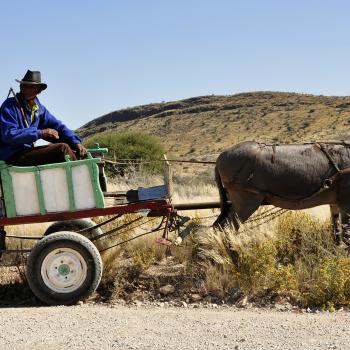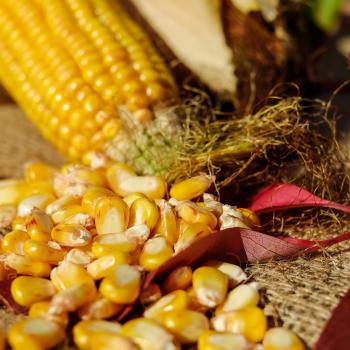By far the most annoying thing about this book is how little Clark actually communicates to Marty. Take this, for instance:
Sunday morning dawned brightly and warm with only enough clouds in the sky to make an appealing landscape. At breakfast, hoping she wasn’t being too obvious, Marty asked Clark if he was through at Jedd’s or if he’d be going back for the day. Clark looked at her with surprise.
“Jed has him a bit more to finish off,” he said, “an’ I wouldn’t be none surprised iffen he’d work at it today. Me, though, I al’ays take a rest on the Lord’s Day. I know it don’t seem much like the Lord’s Day with no meetin’, but I try an’ hold it as sech the best I can.”
Really, Clark? Really?
I don’t know why I find Clark’s surprise so blasted annoying, but I do. He tells Marty nothing about the way his household functions, but somehow expects her to just know?
Clark doesn’t act much like he’s actually brought Marty here to stay—which I’m pretty sure is what he’ll hoping will happen. If he’s actually planning for her to stay longterm, he should tell her about things like the loft storage, or what they do on Sundays.
Grrr Clark.
Anyway, Clark says he’s planning to take Missie out into the woods, with a pack lunch.
“We kinda enjoy jest spendin’ the day lazyin’ an’ lookin’ for the last wild flowers an’ smart-lookin’ leaves an’ all.”
Marty is, of course, relieved. This means she’ll have the entire day to herself.
And then we have one of those weird moments of tell, don’t show.
She wasn’t too sure how she would do with no little girl around to help keep her thoughts from dwelling on her loss.
We’ve never seen Missie do this. We’ve never seen Marty actually spend time tending to Missie. We are told that she fees Missie and puts her down for a nap. Other than that, all we see Marty do is clean to distract herself, and then try to think of more cleaning.
We’ve had lots of fun in the comments over the past few weeks, trying to find explanations for the weirdness in this book by positing all sorts of scenarios. Maybe Marty is a faery who fell in love with a human and was cursed to join the human realm, and that’s why she doesn’t know anything about cooking, for instance. In that vein, maybe Missie is a hologram, and Clark is actually taking her out to the woods to reset her.
I still think we should have been shown instances of the little girl actually distracting Marty and keeping her thoughts off of Clark. Hologram Missie doesn’t fix that.
Clark pulls out “a strange contraption” that looked like “some sort of carrier.” Clark explains that he rigged it up to wear on his back to carry Missie while doing the fieldwork and chores. That’s how he was able to care for Missie and do all the farm work at the same time, see.
Once Clark leaves Marty runs to her room to look at her “shiny new sewing machine.” She can’t wait to try it out. She wonders briefly whether sewing is okay on the sabbath.
She did hope she would not offend Clark’s God. She needed any help He was inclined to give her. She pushed the thoughts aside and let her mind be completely taken up with her task—almost.
You know what? This conversion is going to be a lot more realistic than Jody’s, in Anonymous Tip. Jody’s beliefs about God and religion were left weirdly ambiguous before her conversion. This made her conversion process somewhat confusing, because we were never actually sure where she started. Marty may be somewhat blasé about the concept of God, but at least we know that.
So, she spends much of the day sewing.
The machine worked like a dream, and she couldn’t believe how much faster the seams were turned out with its help.
Last week, a few commenters suggested that it was somewhat hard to learn to work a sewing machine, back then. So, maybe this is faery magic. Oke mentions that her legs and feet were “tired after pumping the treadle all this time,” so at least we’re clear on what type of machine it is.
At this point, Marty decides to go for a walk. She needs a break. She walks around and finds the old biscuits she’d buried, where the dog dug them up and abandoned them as inedible. She also finds, back behind the smokehouse, “a stone platform that had been built into the creek bed,” and concludes that it’s for cooling “crocks of butter and cream” in the summer.
Clark hadn’t shown her this either, by the way, but she concludes that this makes sense—“there had been n reason to, it not being needed this time of year.”
Several times, Marty thinks about what the area will look like in the summer, only to remind herself that she won’t be there. She goes to the corral, where the horses and cows and calfs are.
This is a good farm, Marty decided—just the kind Clem and she had dreamed of having.
Cool.
By the way, I’m pretty sure this is the most time Marty has spent outside since she got here—or, at least, since she tracked Missie down that first day, when she toddled away while Marty napped.
Marty walks by the henhouse and decides she wants some fried chicken.
She hadn’t realized how long it had been since she had tasted any, and she remembered home and the rich aroma from her ma’s kitchen.
Marty had a ma!
I am fairly certain this is the first time Marty has ever mentioned having parents.
Preparing chicken was the one thing she had watched her mother do. Whenever they were to have fried chicken, she would station herself by her ma’s kitchen table and observe the whole procedure from start to finish.
Bullshit. I wouldn’t let my nine-year-old watch me make an entire dinner without putting her to work on one task or another. (Marty doesn’t say she has ever actually cooked fried chicken. There’s a difference between watching someone do something and doing it yourself.)
Also—hang on a sec. We were told that the reason Marty kept making pancakes is because that’s the only thing she knew how to cook, but Clark actually did tell Marty fairly early on that there were plenty of chickens, and she could cook one any time she liked. So why didn’t she? She clearly now views herself as someone who knows how to make fried chicken, based on watching her ma.
This does not make sense.
What happens next doesn’t make much sense, either. I’m going to spare you the details and just summarize it. Marty goes after a rooster, but she finds—to her surprise—that it doesn’t respond to coaxing the way a dog would. She’s very much surprised by all of the chickens’ actions, in fact. Oke explains that “Her mother had never begun with a live bird” and that “Marty had never chopped off a chicken’s head before.” Still, she’s determined to try it, which means she has to catch a chicken.
After chasing the chickens up and down the coop, she finally catches a rooster. She carries it to the chopping block (which I guess is by the shed) and tries to cut its head off with an axe, but she finds she can’t get it to stay still, and she doesn’t have three hands. Finally. she makes a wild swing with the axe and cuts off part of its beak. At that, the rooster gets away and runs off across the yard.
Marty leaves it and goes back to the coop. After much work, she finally catches a chicken. She takes it inside to get some twine, then she ties its feet to one tree and its head to another tree, pulling each side tight. No, really. Then she puts its head on the chopping block and chops it off—successfully.
It worked—but Marty was totally unprepared for the next event. A wildly flopping chicken—with no head—covered her unmercifully with splattered blood.
“Stop thet! Stop thet!” she screamed. “Yer s’pose to be dead, ya—ya dumb headless thing.”
She took another swing with an axe, relieving the chicken of one wing. Still ti flopped, and Marty backed up against the shed as she tired to shield her face from the awful onslaught.
So, presumably, Marty grew up in a town, not in the country. Her mother—it seems—bought already dead chickens for cooking. But how reasonable is it, in the 1860s or so, that she wouldn’t have known this about chickens—that they keep moving after they’re dead? I knew this, and I live in the twenty-first century. I’ve seen it, too—my dad cut off a rooster’s head at my grandparents’ farm once. I was there, maybe ten years old. My grandma plucked it and cooked it.
But isn’t this just common knowledge, beyond people who have actually seen it done? And if it’s not, wouldn’t it have been, in the mid-1800s? Also, tying the chicken’s feet to one tree and head to another tree seems a bit extreme. Why not tie its wings to its body, or, I don’t know, blindfold it?
So! Regardless, the chicken is now headless and has stopped moving. Marty defeaters it, cleans it out, washes and seasons it, and puts it “in the frypan with savory butter.”
She decided she’d best get cleaned up before Clark and Missie returned. A bath seemed to be the simplest and quickest way to care for the matter, so Marty hauled a basin into her room and filled it with warm water.
There is no running water. A bath is neither simple nor quick.
When she was clean again, she took the dreadfully dirty dress and put it to soak in the bath water. She’d deal with that tomorrow, she promised herself as she carried the whole mess outside and placed it on a wash table beside the cabin.
This is confusing. The basin she used was heavy enough that she had to “haul” it into her room even when it was empty, but somehow light enough, with water, that she can carry it outside and put it on a table. Oke must not mean an actual bath. She must mean a sponge bath. Nothing else makes sense.
So, Clark and Missie return.
Clark’s face showed no surprise, and their exchanges were matter-of-fact and Marty welcomed the two in for supper.
Indeed, Clark could hardly contain his surprise during the meal and had been on the verge of asking Marty if she’d had company that day, so sure was he that she must have had helped to accomplish what a chicken for supper would require. But he’d thought better of such a question.
Again with the complete lack of communication. This could have been a nice opening into talking about her background: “This is delicious, where did you learn how to cook such good chicken?” But instead, Clark does what he always does and completely ignores it and says nothing.
After supper he goes outside and sees the dress, the bloody water, the chopping block, and the twine attached to the trees. He finds the chicken coop in complete disarray.
What really topped all was the old rooster angrily perched on the corral fence with his ridiculously short beak, clacking away to beat the band.
“Well, I never,” muttered Clark, shaking his head in amazement.
He couldn’t help but smile at the sight of that rooster. Tomorrow he’d do something about him. Tonight he was thankful for Marty’s meal of fried chicken.
The end.
What even was the point of this whole episode?
This chapter is basically: (1) Clark doesn’t tell Marty what they do on Sundays and acts shocked when she doesn’t know; (2) Clark takes Missie out for a day-long ramble through the woods, leaving Marty to have some of her own time; (3) Marty uses her new sewing machine for hours, with no need for instruction on using it; (4) Marty goes on a walk, notices things around the farm that Clark still hasn’t told her about, and decides to make a chicken supper; (5) Marty has hijinks making the chicken supper happen; and (6) Clark appreciates the supper, notices the hijinks, and says nothing.
What did we learn here? That Marty is tenacious and doesn’t give up in the face of adversity? Maybe the point is that Clark learned that? Is he learning to respect her for her tenacity? Is that the takeaway? Or is her tenacity—going through everything she did—supposed to be cute? Whatever we were supposed to learn, we still haven’t seen Clark and Marty actually communicate.
While I feel like the twine tied to trees seems odd—there has to have been a simpler work-around than that—I do still find Marty more realistic in her actions and motivations than I did Farris or Rivers’ protagonists. She wanted a chicken supper. She was going to have a chicken supper, dammit.
She spent her entire childhood watching her mother cook chicken, remember, without lifting a finger to help. That seriously needs explanation. As we soon learn, Ma Graham’s two oldest daughters, Sally and Laura, know how to run a household themselves already, and they’re 17 and unmarried.
At least we now know that Marty had a mother? Is she still alive? We’re not told. But she existed.
I have a Patreon! Please support my writing!















